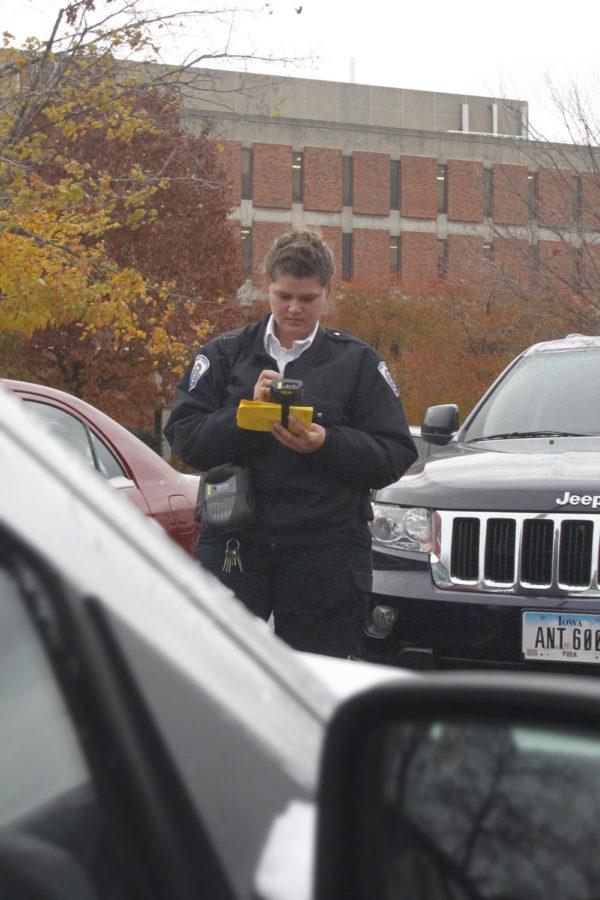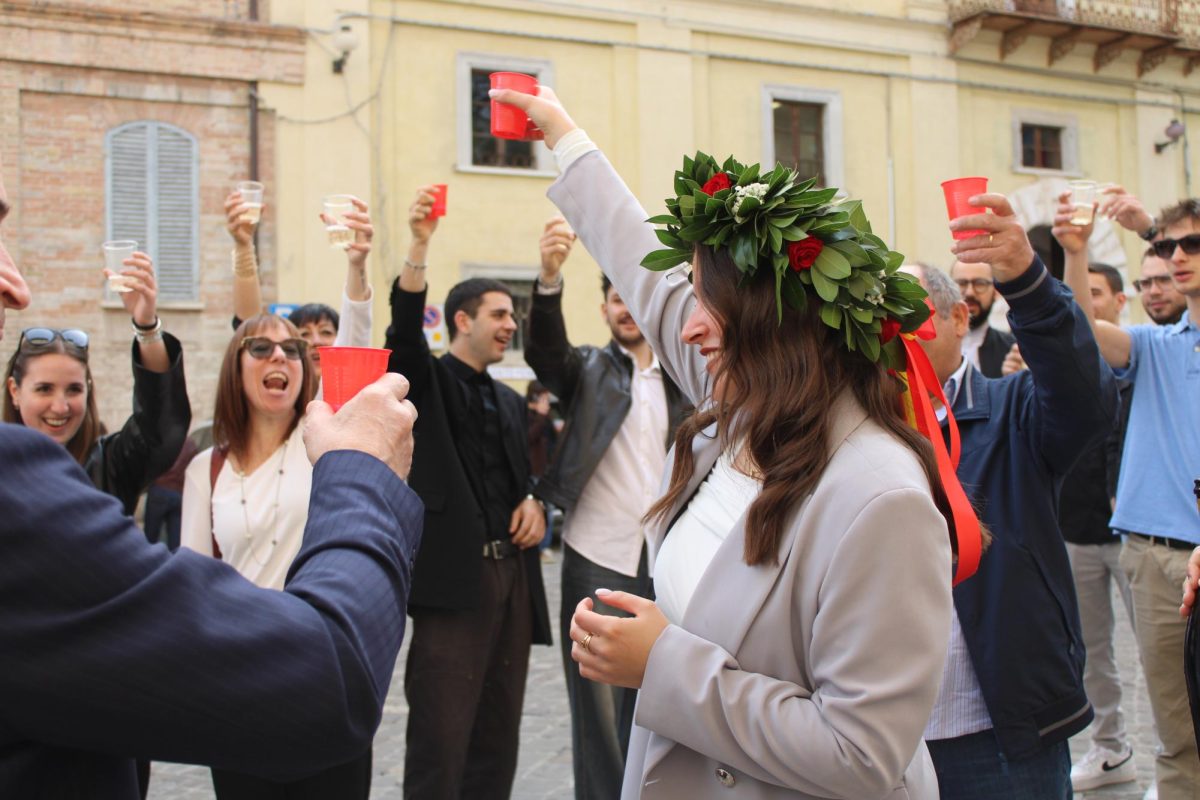Parking Division offers tips to avoid tickets
Sara Sprecher, parking and transportation field service officer, writes tickets in the prepay lot next to the Armory. Sprecher, along with other ticket writers for ISU Parking Division, patrols all lots on campus for ticket violators.
November 12, 2013
As winter blows in across campus and more students choose to drive to class, Mark Miller, program director for Parking Division, said there are ways to avoid the piles of parking tickets that some students accumulate.
Miller said that for the students who feel like the Parking Division follows their car around campus, CyRide should be the No. 1 alternative to driving.
This alternative makes the most sense for students since it is a service they already pay for, and it can often get them to campus faster than it would take to drive around and find an empty parking spot, Miller said.
However, many students do not find alternatives that fit their needs said Alejandro Valdes, junior in performing arts, who said he knew of at least one person who was upset that they got a parking ticket on campus.
“He works at Conversations, and he can’t take the bus early in the morning because it’s not there at 6 o’clock. He drove there, parked in the parking lot behind Maple-Willow-Larch, and he got a parking ticket,” Valdes said. “He got upset because there’s no way he could go around it. He had to go to work and take the bus super early, and that’s kind of counter-productive.”
Valdes also said he knew students who parked in a loading zone and another who parked in front of a bus stop during a period when the bus would not stop at that spot for a few hours. Neither got a ticket.
Miller said the Parking Division wrote 64,615 parking tickets last fiscal year, which is typical but could be prevented. There are 740 meter parking spaces on campus at which students can park.
Miller also said that despite the fact there are more than 7 million cars on campus during the year, there are still many vacant parking spots in the commuter lots north of campus where students can pay for a parking pass, but Valdes said many students do not feel like paying the $150 for a parking pass.
“Some people don’t want to have to pay $150, they just want to pay for $15 instead,” Valdes said. “I feel like paying for parking is almost not worth it. People might as well pay the ticket instead of paying for a parking pass.”
He feels that paying for parking is just another added expense.
“If you always have a ticket you feel like you’re being targeted. There’s just so many people going to school here, there’s so many people driving that it’s hard for people to find parking spots,” Valdes said. “Not only do you have to pay for tuition and your books and everything but you have to pay for parking. Some people just want to take a short cut and just don’t pay for parking.”
On the other hand, Miller said there are many students who get one or two parking tickets and become more compliant, which is the goal behind issuing tickets.
There are also “heavy offenders” like one student who racked up $3,500 worth of tickets a few years ago.
The Parking Division is a self-supporting entity and does not receive any tuition dollars or state allocations. This means that all money from citations goes toward upkeep like snow removal, line-painting and crack-filling of the parking lots that ISU members use daily. Any money left over in the annual budget goes toward projects like repaving a parking lot or building a new facility.
Miller said a few years ago, the Parking Division began taking pictures of the cars for which they issued citations because 99 percent of tickets were being appealed.
“Ninety-nine percent of people come and say, ‘I’ve never had my car on campus. I wasn’t parked there,’” Miller said. “We started showing them the pictures. 99 out of 100 people were lying to us.”
Another common argument between the Parking Division and students was that students would often say that they were incorrectly parked only for a few minutes, Miller said.
“Show me how we can tell you were only in there for five minutes,” Miller said. “If there’s nobody around the car we don’t know if they were in there for five minutes or 50 minutes.”
Miller said the point of writing parking tickets was to make drivers compliant with parking rules to ensure convenience and safety for everyone.
“We don’t like to write the tickets, but we have to enforce the rules. It would be tougher to get parking on campus if it were just a free-for-all,” Miller said. “We’ve got a job to do like everybody else. It’s a privilege to park on campus; it’s not a right.”

















